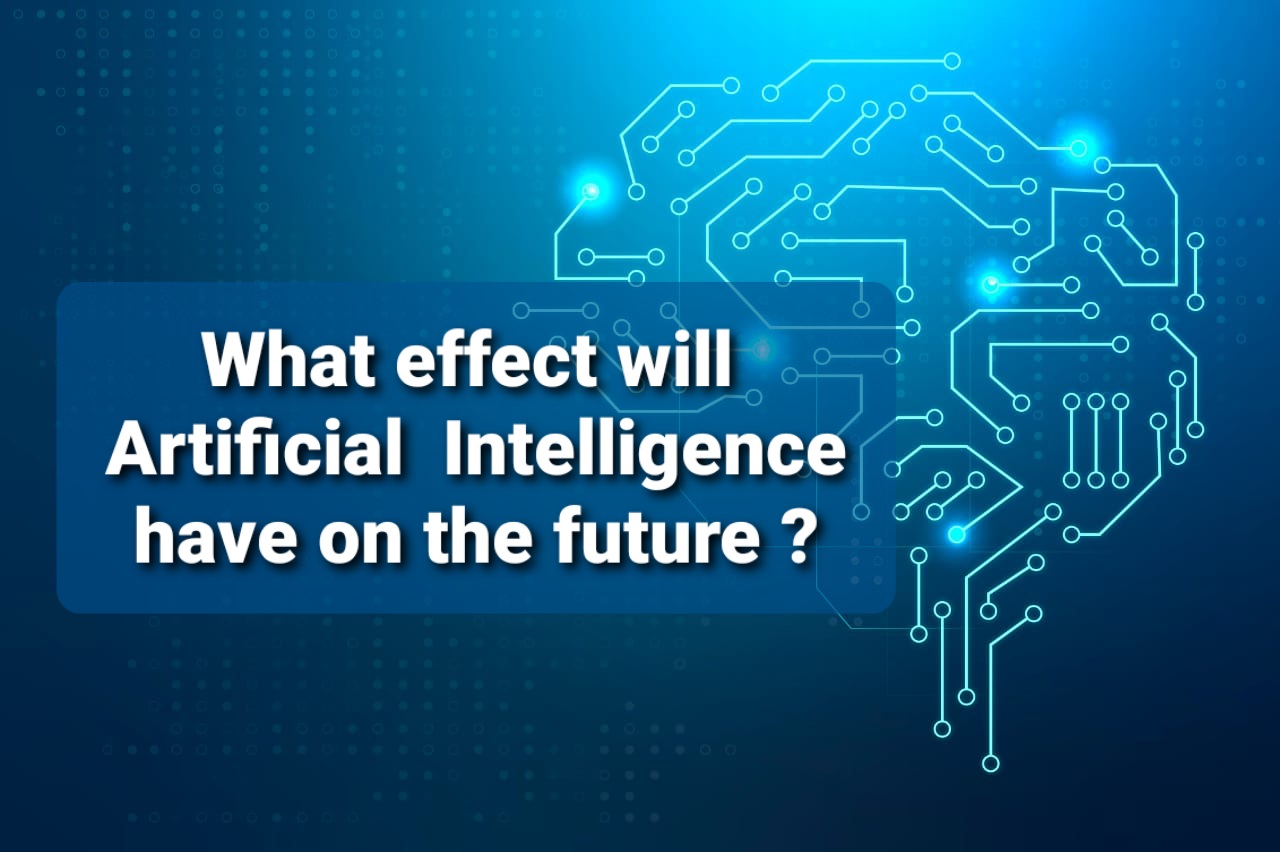
WHAT EFFECT WILL ARTIFICIAL INTELLIGENCE HAVE ON THE FUTURE?
In recent years, artificial intelligence has had a significant impact on a variety of businesses, and it will continue to do so in the future. Many industries, both corporate and public, are onset for their advantage and growth as a result of the pandemic-induced acceleration of technology adoption. AI has enabled several innovations and pushed the growth of technologies such as IoT, robotics, analytics, and voice assistants in recent years. AI led the patent submissions in 2020, according to research. This isn’t new; AI has accumulated a considerable number of patents in recent years.
AI is expected to contribute $15.7 trillion to the global economy by 2030, according to a PwC analysis. So, let’s have a look at how Artificial Intelligence Future could make this possible:

Health Care:
Artificial intelligence has had a major impact on the healthcare industry, especially after last year’s epidemic. A patient-centered healthcare system was powered by AI and other innovative technologies. This future care scenario is entirely digital, emphasizing the value of data and analytics. Drug research and vaccine development relied heavily on predictive analytics, machine learning, and artificial intelligence. The usage of new technologies will become the standard in the next years, and easily available electronic medical data will make diagnosis easier.
Healthcare systems will be able to follow and monitor patients in real time, as well as obtain genetic data and learn about each person’s lifestyle, thanks to AI. Algorithms will be in charge of diagnosing illnesses and suggesting appropriate remedies. Complex surgeries would be performed with a high degree of precision by artificially intelligent robots. It keeps customers informed about their health and well-being. Furthermore, AI empowers healthcare providers to better comprehend the daily habits and wishes of the patients they care for.
Security:
AI’s applications in defense and security are nearly limitless. To improve performance, artificial intelligence is frequently integrated into weaponry and surveillance systems. It’s frequently used to improve target recognition, war simulation and training, and danger detection. Most crucially, the dangerous and critical work of securing the country’s borders can be entrusted to artificially intelligent robots, unmanned aircraft, drones, UAVs, and other similar devices. This would lessen the risk of soldiers dying on the border and improve monitoring through the use of advanced facial recognition technology.
In the future, the combination of artificial intelligence and human intelligence will lead to the development of sophisticated cybersecurity breakthroughs. AI will make it possible to fight cybercrime and cyberattacks more effectively.
Entertainment:
Netflix and Amazon Prime, for example, are rapidly expanding their user bases. Smart algorithms will be able to devise the most basic marketing and advertising solutions. By employing predictive analytics and AI, it is feasible to develop all marketing processes a couple of times faster.
AI will be able to predict not just our preferences, but also our mood in the future, and will show material accordingly. In the future, virtual reality-enabled sci-fi content and games could be a source of entertainment. The E&M business in the United States is expected to reach $759 billion in revenue by 2021, growing at a CAGR of 3.6 percent.
Manufacturing:
Manufacturing will be entirely automated in the near future. AI also helps organizations predict market shifts by optimizing industrial supply networks. Manufacturers value this information because it allows them to optimize personnel, internal control, energy use, and thus raw material supply.
The transportation and industrial industries can benefit greatly from AI. We may see the perfect progress and commercialization of smart and autonomous automobiles in the future years. Self-driving cars are already on the market, but more people will be using them in the next two to three decades. AI will aid the industrial industry as well. Increased factory robot utilization and predictive analytics in the sector will improve product quality and streamline logistics and supply chains.
Artificially Intelligent Systems-enabled manufacturing processes would be capable of not only performing the needed operations, but also inspecting, improving, and quality-checking the products without the need for human interaction. Furthermore, according to reports, Artificial Intelligence in the manufacturing industry is predicted to increase at a CAGR of 49.5 percent from USD 1.0 billion in 2018 to USD 17.2 billion by 2025.
Finance:
Artificial Intelligence (AI) is the best path ahead for banking since it provides enhanced data analytics to prevent fraud and increase compliance. AI assistants, like chatbots, employ AI to provide individualized financial advice and process data in order to provide rapid, self-help consumer assistance. It is becoming easier to detect and stop fraud in the financial sector as systems become more efficient and intelligent.
Artificially Intelligent Systems, for example, can aid in high-frequency trading, improved customer service, and better decision making by processing enormous amounts of data more quickly.
“It’s going to be interesting to see how society deals with artificial intelligence, but it will definitely be cool.”
—Colin Angle
